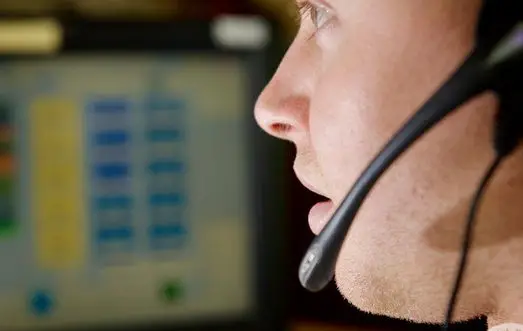Her Majesty’s Inspector of Constabulary has today issued a national report about how forces across England and Wales are recording crime.
It reveals some startling information in relation to Hampshire Constabulary – who cover the Isle of Wight.
A massive 40% of crimes reported to Hampshire and Isle of Wight police were not recorded during the audit period of November 2012 to October 2013. That’s more than double the national average of 19%.
From a random sample of incidents only 67 of some 112 incidents were recorded by police as crimes.
Winsor: “Failure to properly record crime is indefensible”
Her Majesty’s Chief Inspector of Constabulary Tom Winsor said,
“The first duty of the police is to protect the public and reduce crime. Failure to properly record crime is indefensible. This is not about numbers and dry statistics; it’s about victims and the protection of the public.
“The position in the case of rape and other sexual offences is a matter of especially serious concern.”
Farrell: “No evidence of institutionalised performance pressure”
Detective Supt Rachel Farrell commented,
“For almost a year we have been working with our staff and officers to change the process of how we record crime. This has been necessary as we cut back office staff in order to keep as many officers as possible on the frontline.
“The HMIC audit has been timely. It comes part way through our change and highlights specific areas where we need to improve. We welcome the positive comments about our strong victim focus. It is also reassuring that our plans are judged to be comprehensive, and that there is no evidence in Hampshire Constabulary of institutionalised performance pressure not to record crime correctly.
“We are already seeing improvement. We are recording more crime on our systems every year and if that means that public trust and confidence in policing also goes up then that can only be positive.”
Tom Winsor added,
“Trust in what the police tell people about crime is part of the essential trust which the public must have in the police.”
The report refers to “unacceptable weaknesses” in the force’s approach to crime recording and standards of supervision, but recognises the force “has taken a number of steps to address the findings since”.
Full details can be found in the report embedded below for your convenience. Click on the full screen icon to see larger version.
Hampshire Constabulary’s press release in full. Ed
Hampshire Constabulary today revealed major changes to how it is recording crime. Some crimes, which previously would have been investigated first and then recorded as crimes, are now being recorded immediately on contact from a victim or on speaking to a member of the public.
The change is part of the Constabulary’s growing efforts to put victims at the heart of the criminal justice system. The measures address concerns raised by Her Majesty’s Inspector of Constabulary in a national report about how forces across England and Wales are recording crime.
A separate Hampshire-specific report, which looks at force activity between 1 November 2012 and 31 October 2013, states that the force has a “strong victim focus” and that “there is no evidence of institutionalised performance pressure not to record crime correctly”.
Investigation standards are not called into question.
Weaknesses were highlighted in Hampshire Constabulary’s previous “investigate to record” approach, where officers speak to victims and investigate before recording and categorising crime in databases. Less crime has been recorded than would have been if national standards had been applied in all cases.
Reasons include:
- Occasions when crimes are not recorded into databases when victims state that they do not want to pursue criminal action with regard to the offence
- Occasions where multiple crimes, reported as part of the same incident, are only recorded once
- Occasions where crimes with multiple victims are only recorded once rather than a separate crime record filed for each victim
D/Supt Rachel Farrell commented:
“For almost a year we have been working with our staff and officers to change the process of how we record crime. This has been necessary as we cut back office staff in order to keep as many officers as possible on the frontline.
“The HMIC audit has been timely. It comes part way through our change and highlights specific areas where we need to improve. We welcome the positive comments about our strong victim focus. It is also reassuring that our plans are judged to be comprehensive, and that there is no evidence in Hampshire Constabulary of institutionalised performance pressure not to record crime correctly.
“We are already seeing improvement. We are recording more crime on our systems every year and if that means that public trust and confidence in policing also goes up then that can only be positive”.
Sexual offences
Over the last three years Hampshire Constabulary has seen a 53% increase in reports of rape from the public. This is welcomed by the Constabulary as a sign of confidence in the public reporting such crimes, and a great deal of progress working with our partners across the counties (more details can be found below).
Image: West Midlands Police under CC BY 2.0





